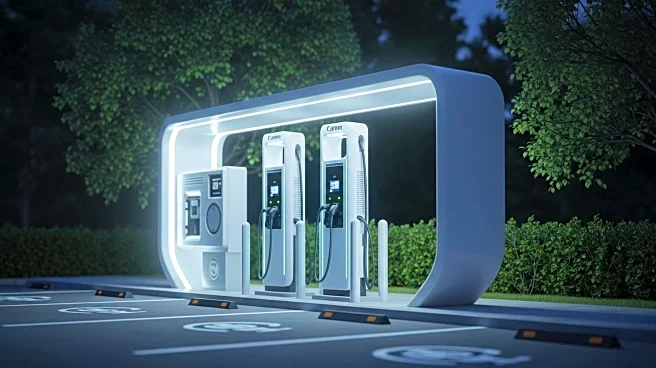What's Happening?
The United States is experiencing slow growth in its electric vehicle (EV) market compared to other countries. While nations like Norway and China have seen rapid increases in EV market share, the U.S. remains significantly behind. Norway has nearly completed its transition to EVs, and China has achieved a 50% market share, showcasing impressive growth. The European Union has also seen strong EV growth, although it stalled slightly in 2024. In contrast, the U.S. market is described as anemic, with slow sales growth, highlighting the country's lag in adopting this key technology of the 21st century.
Why It's Important?
The slow adoption of electric vehicles in the U.S. has implications for the country's position as a technology leader. As the global market shifts towards sustainable transportation, the U.S. risks falling behind in innovation and competitiveness. This lag could affect the automotive industry's future, impacting jobs and economic growth. Additionally, the transition to EVs is crucial for reducing carbon emissions and combating climate change. The U.S.'s slow progress in this area may hinder its ability to meet environmental goals and commitments, affecting its leadership role in global climate initiatives.
What's Next?
To catch up with global leaders in the EV market, the U.S. may need to implement policies that encourage EV adoption, such as incentives for consumers and investments in charging infrastructure. Automakers might increase their focus on developing and marketing EVs to meet growing consumer demand and regulatory requirements. The government could also play a role in supporting research and development to advance EV technology and reduce costs. Monitoring these developments will be essential to understanding how the U.S. can improve its standing in the global EV market.
Beyond the Headlines
The U.S.'s lag in the EV market reflects broader challenges in transitioning to a sustainable economy. Addressing these challenges requires a coordinated effort across industries and government to promote innovation and investment in clean technologies. The cultural and economic shifts needed to embrace EVs may also influence consumer behavior and transportation policies. As the world moves towards a greener future, the U.S. must navigate these changes to maintain its economic and technological leadership.











